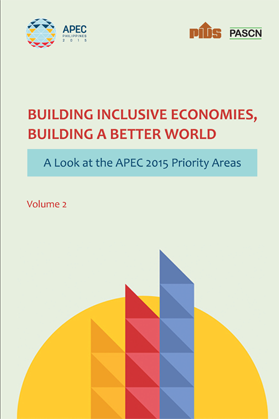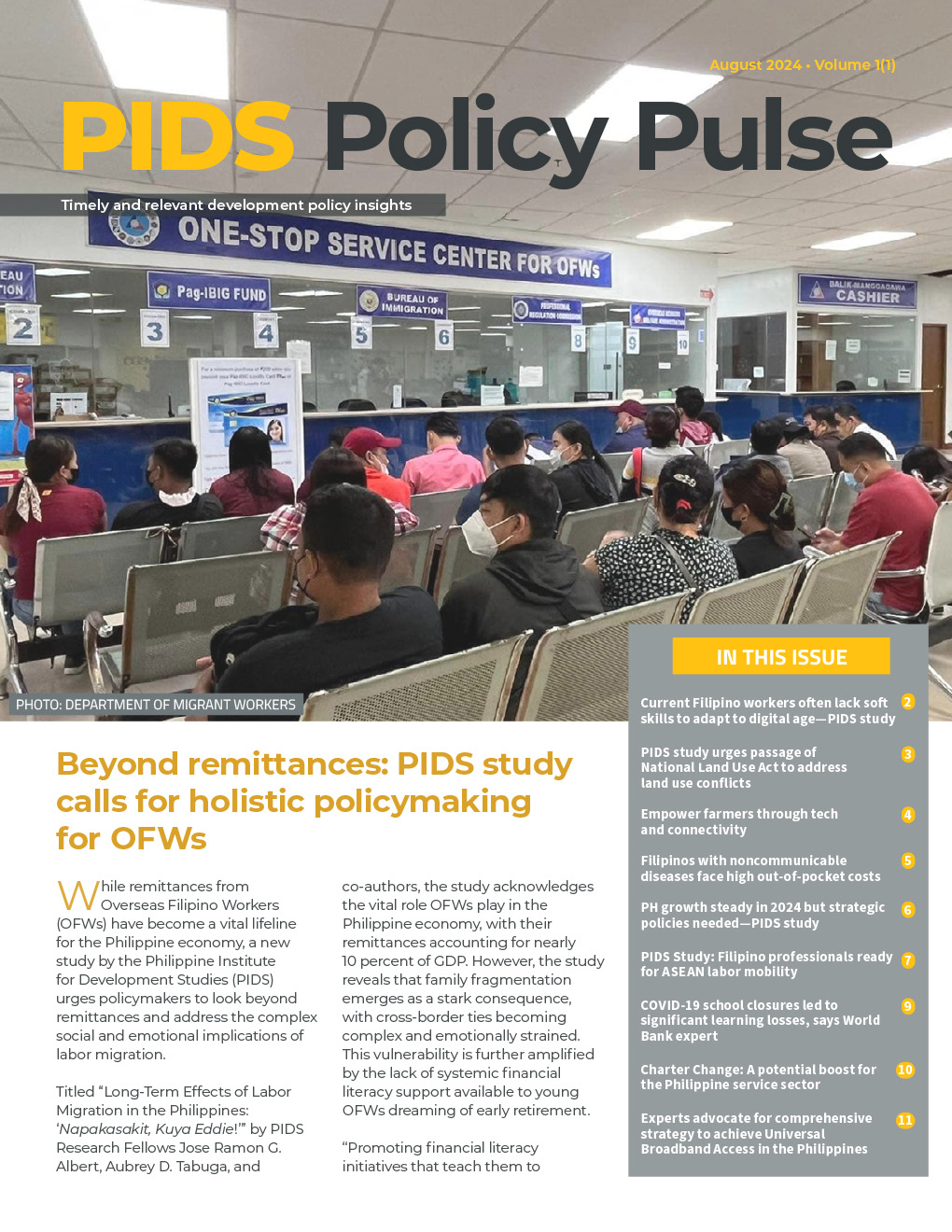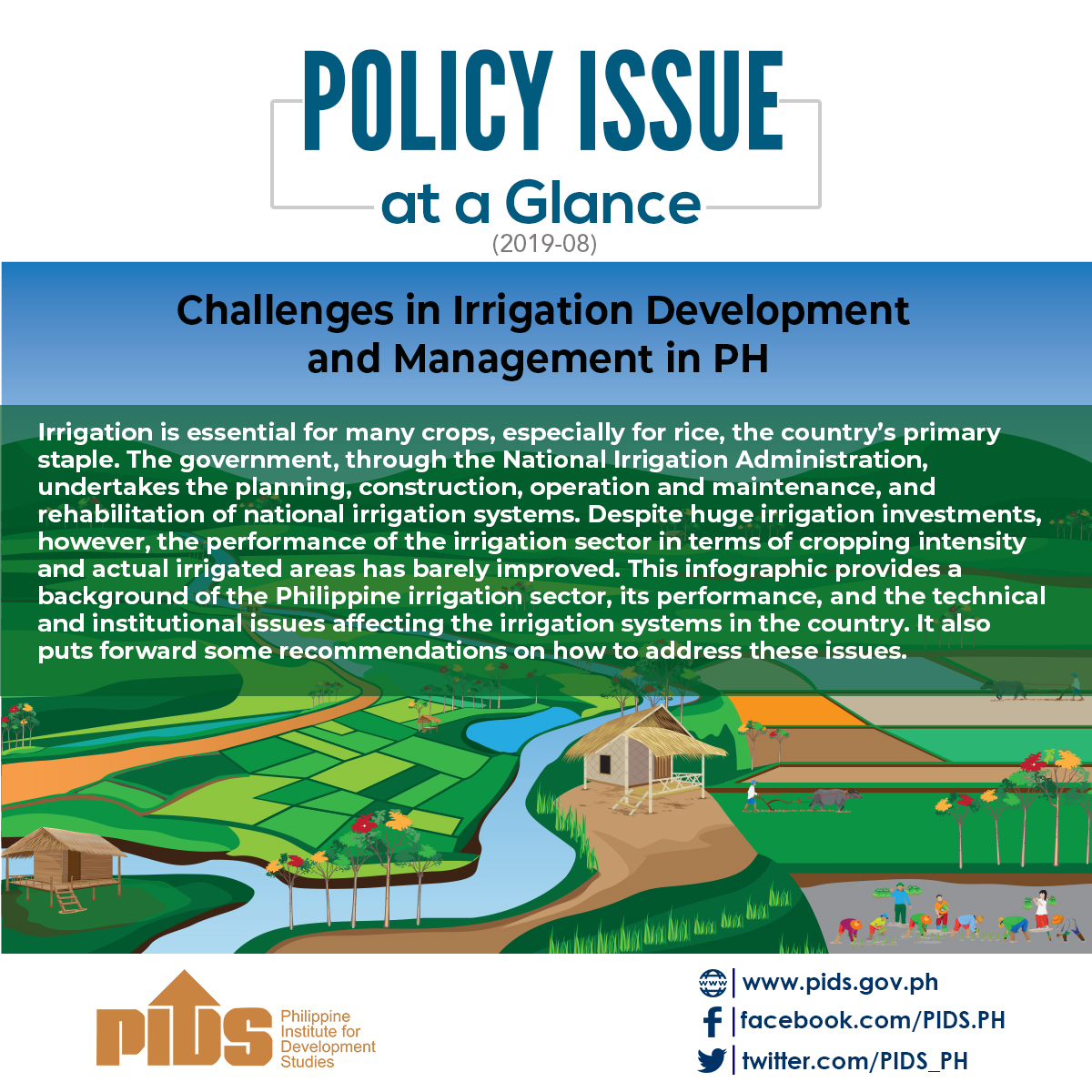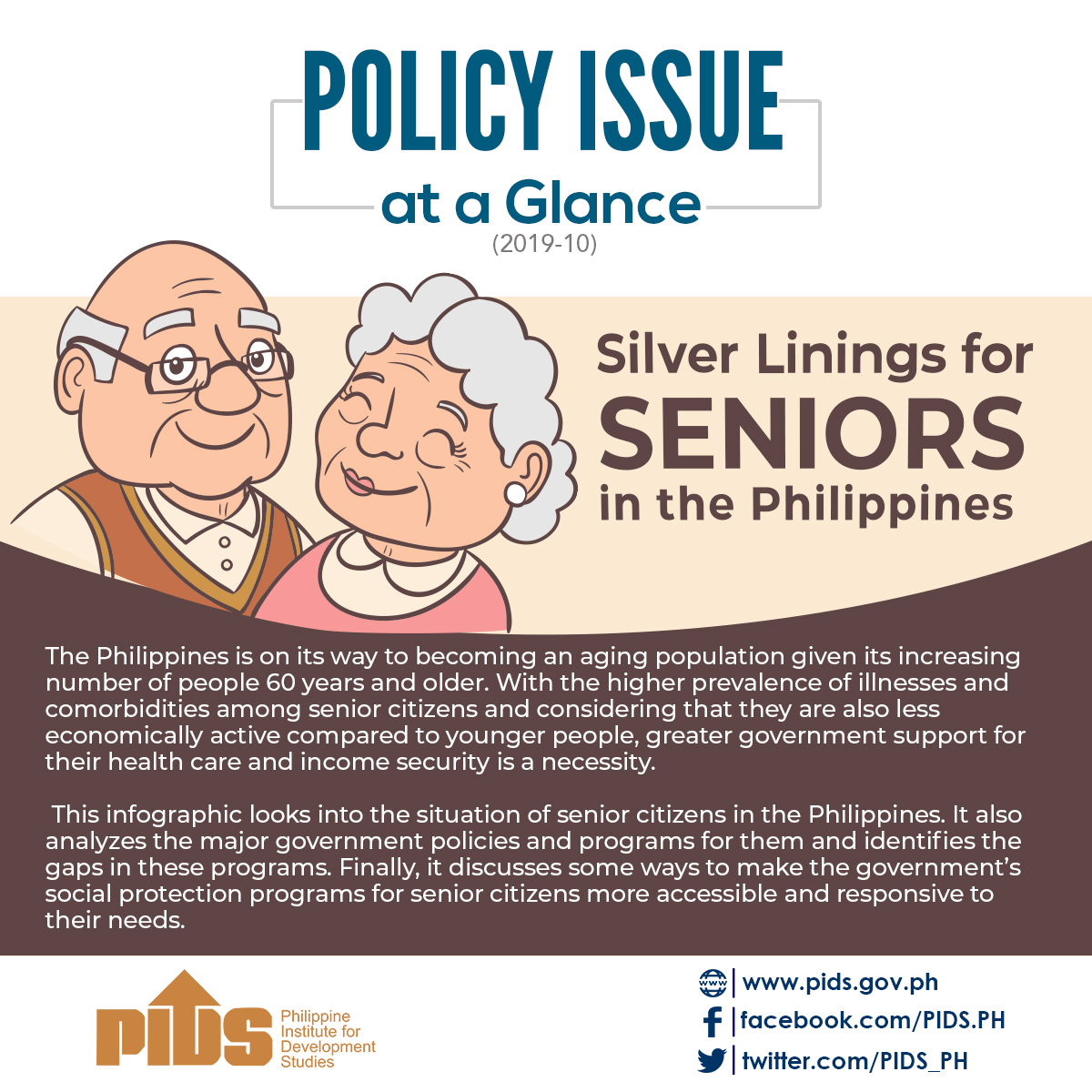
PIDS Book 2017-02: Building Inclusive Economies, Building a Better World: A Look at the APEC 2015 Priority Areas (Volume II) by Philippine Institute for Development Studies and Philippine APEC Study Center Network
The Department of Foreign Affairs, as chair of the Asia-Pacific Economic Cooperation (APEC) 2015 National Organizing Council Committee on Host Economy Priorities and as APEC National Secretariat, commissioned the Philippine Institute for Development Studies, through the Philippine APEC Study Center Network, to undertake research on the identified priority areas of APEC 2015 in order to gather expert analyses and insights that can serve as inputs to the various discussions during the summit as well as help advocate domestic reforms in the longer term.
This two-volume publication consists of policy papers written under the Research Project APEC 2015. The project explores the four priority areas of APEC 2015, namely, enhancing regional economic integration, fostering small and medium enterprises' (SMEs) participation in the regional and global economy, investing in human capital development, and building sustainable and resilient communities. Volume 2 focuses on fostering SMEs' participation in the regional and global economy, and building sustainable and resilient communities. It is made up of papers that tackle mainstreaming of SMEs, social enterprises and employment, women's participation in the economy, food security, SMEs' resilience to natural disasters, and social protection. Click here to download the electronic copy of the book.
PN 2017-15: Understanding the Principles Underlying the Philippine Competition Law by Erlinda M. Medalla
This Policy Note revisits the principles of the Philippine Competition Act as a breakthrough legislation intended to promote free and fair competition in economic activities in the country. It advances the idea of fair play, which means that the competition policy should prevent firms from obtaining inequitable market power by excluding others from playing. The study recommends the enforcement of competition rules, such as in the provision of access to essential facilities like transmission lines, the allocation of frequencies in telecommunications, and the opening up of segments that are no longer natural monopolies. It also urges the government to promote competition and, where necessary, good regulation to assist the market to produce competitive outcomes. Click here for the full article.












